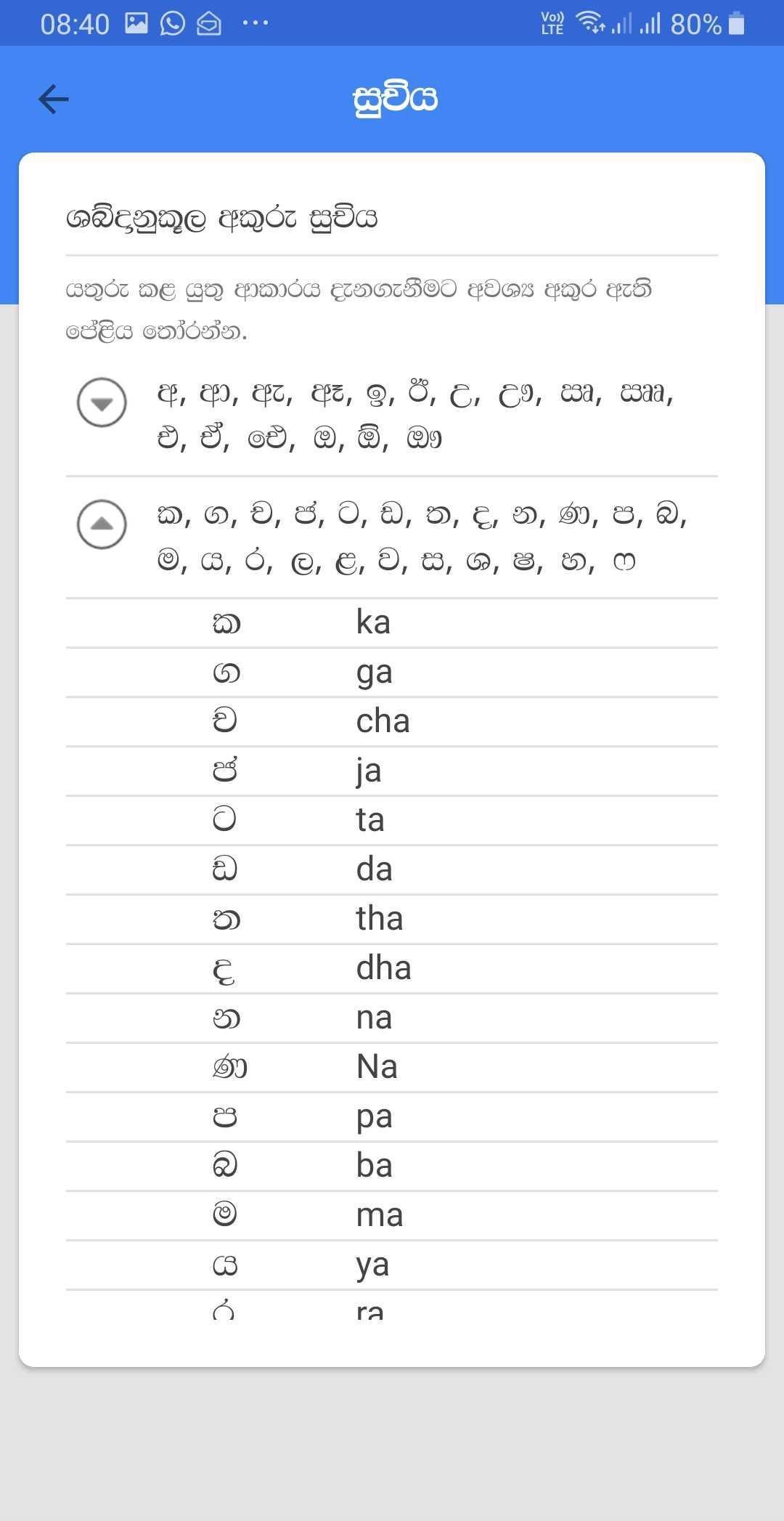Have you ever been captivated by the elegant curves and intricate details of an unfamiliar script? Perhaps you’ve seen it on signage during travels, in a beautiful piece of artwork, or even online. For those unfamiliar, it’s likely you’ve encountered the Sinhala script (සිංහල අක්ෂර මාලාව), a writing system with a rich history and deep cultural significance, primarily used to write the Sinhala language, the native tongue of the Sinhalese people of Sri Lanka.
The Sinhala script, with its distinctive rounded characters, immediately sets itself apart from other writing systems. Its beauty lies not only in its aesthetics but also in its ability to convey the nuances of the Sinhala language, a language spoken by millions. Understanding the Sinhala script opens a door to a vibrant culture, rich with literature, poetry, and a unique perspective on the world.
Delving into the world of සිංහල script is like embarking on a fascinating journey through time and culture. From ancient inscriptions on rock faces to modern digital platforms, the Sinhala script has evolved and adapted, reflecting the changing landscape of communication while preserving its inherent beauty. This journey of exploration allows us to appreciate the importance of preserving and promoting this unique writing system in the digital age.
This exploration of the Sinhala script (සිංහල ලිපිය) isn't just about appreciating its aesthetic appeal. It’s about understanding its role in shaping and preserving Sinhalese identity and culture. By learning more about its usage, challenges, and the ongoing efforts to digitize it, we gain a deeper understanding of the importance of linguistic diversity in our interconnected world.
So, whether you’re a language enthusiast, a design aficionado, or simply curious about different cultures, join us as we unravel the story of the Sinhala script – සිංහල අක්ෂර. We’ll explore its history, discuss the challenges of rendering it digitally, and look at its significance in the modern world. This exploration aims to offer a comprehensive look at this fascinating script, celebrating its beauty and highlighting its continued relevance in a globalized world.
The Sinhala script, also known as Sinhala alphabet (සිංහල හෝඩිය), descends from the ancient Brahmi script, much like many other South Asian writing systems. Its origins can be traced back to the 6th century BCE. The script evolved over centuries, influenced by various factors including South Indian scripts. Its elegant, rounded forms distinguish it from other scripts in the region. සිංහල is vital for preserving Sinhalese literature, history, and cultural identity. Digitization poses a challenge due to its complex characters, but advancements are being made.
A simple example of Sinhala script is the word for "hello," which is "ආයුබෝවන්" (āyubōvan). Each character represents a sound or a combination of sounds.
Benefits of using Sinhala script digitally include wider access to Sinhala literature, easier communication for Sinhala speakers, and preservation of the script for future generations.
Advantages and Disadvantages of Digital Sinhala
| Advantages | Disadvantages |
|---|---|
| Preservation of language and culture | Technical challenges in rendering complex characters |
| Increased accessibility to information in Sinhala | Limited font availability |
Best practices for using Sinhala digitally include using Unicode compliant fonts, ensuring correct keyboard layouts, and supporting initiatives that promote Sinhala digitization.
Real examples of Sinhala script usage include websites, social media posts, digital books, and mobile apps. Challenges in digital Sinhala include font compatibility issues and lack of standardization.
Frequently asked questions about Sinhala script include: What is its origin? How is it written? What are the challenges in its digitization? How can I type in Sinhala? Where can I find Sinhala fonts? What are the different Sinhala keyboard layouts? How is Sinhala used in modern media? What are the resources for learning Sinhala?
Tips for using Sinhala script include practicing writing and learning the keyboard layout.
The Sinhala script, සිංහල හෝඩිය, stands as a testament to the rich cultural heritage of Sri Lanka. From ancient inscriptions to its modern digital form, the script has played a crucial role in preserving and promoting Sinhalese language and culture. While challenges remain in its digitization, the ongoing efforts and advancements ensure that this beautiful script continues to thrive in the digital age, connecting millions to their heritage and enabling them to communicate, learn, and express themselves in their mother tongue. Exploring the world of Sinhala script offers a fascinating glimpse into a vibrant culture and reinforces the importance of embracing linguistic diversity in our globalized world. We encourage you to explore further, learn more about the Sinhala language and script, and contribute to its continued preservation and promotion. By appreciating and understanding scripts like Sinhala, we enrich our understanding of the world and the diverse tapestry of human expression.
Mi Damindu2000 Sinhala Font Free Download - The Brass Coq
Sinhala font keyboard layout free download - The Brass Coq
sinhala in sinhala font - The Brass Coq
Sinhala Fonts For Photoshop - The Brass Coq
IW Indu Sinhala Font Free Download - The Brass Coq
Sinhala unicode to font - The Brass Coq
Helakuru sinhala font free download for pc - The Brass Coq
Iskoola Pota Sinhala Font Free Download - The Brass Coq
GS Nelum Sinhala Font Free Download - The Brass Coq
Sinhala song lyrics in sinhala font - The Brass Coq
Sinhala font for windows 10 studentlanka - The Brass Coq
Sinhala Fonts Free Download - The Brass Coq
Aradhana Sinhala Font Free Download - The Brass Coq
Sinhala font for windows 10 - The Brass Coq
Iskoola pota sinhala font - The Brass Coq














